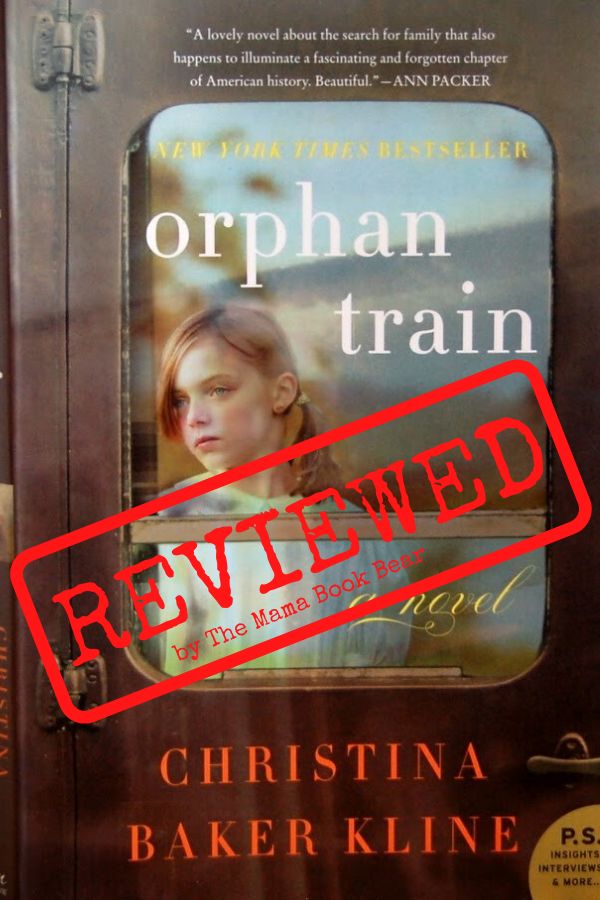Have you ever wondered what it would be like to have your destiny shaped by the whims of strangers? Christina Baker Kline’s gripping novel, “Orphan Train,” invites us to ponder the precariousness of fate as it intertwines the lives of two seemingly disparate characters across generations. Set against a backdrop of historical upheaval, this narrative delves deep into themes of identity, belonging, and resilience. As readers, we embark on an analytical journey that not only explores the intricacies of the plot but also challenges us to reflect on our own lives. What would you do if faced with such uncertainties?
The novel oscillates between two primary timelines, showcasing the life of Vivian Daly, a ninety-one-year-old Irish immigrant who was once an orphan herself, and Molly Ayer, a modern-day troubled teenager. This dual perspective enriches the narrative, allowing readers to appreciate how the echoes of history reverberate through the modern world. The interplay between Vivian’s past and Molly’s present forms a riveting tapestry that binds the two women’s stories in unexpected ways.
Vivian’s experiences as a child are harrowing yet illuminating. Orphaned at a young age, she is swept away on one of the infamous orphan trains that transported displaced children from the East Coast to the Midwest. These trains represented not only a glimmer of hope for many but also a profound gamble where the children’s futures hung in the balance. Readers can vividly imagine the trepidation of children, not knowing where they were going and what awaited them. Through Kline’s deft storytelling, we feel Vivian’s heart-wrenching longing for connection as she navigates waves of rejection and despair.
On the other hand, Molly’s life reflects the complexities of contemporary society. Fostered and troubled by her own circumstances, she serves as a poignant reminder of how the echoes of orphaned children persist in today’s world. As Molly gets involved in helping Vivian clean out her attic, their lives begin to intersect in ways that lead to mutual healing and understanding. The generational divide fades away as they share their struggles, revealing that the essence of human experience remains fundamentally the same, regardless of the year or circumstances.
But why does Kline choose to juxtapose these two characters? What challenge does she pose to her readers through their contrasting yet complementary narratives? The answer lies in the exploration of identity. Each woman wrestles with her past, trying to make sense of who she is amid the chaos of her experiences. Vivian’s memories of loss and resilience juxtaposed with Molly’s struggles for acceptance push us to confront our own narratives. Are we mere products of our past, or can we redefine ourselves beyond the events that shape us?
The poignancy of “Orphan Train” resonates deeply within the reader. Kline artfully portrays the scars left by trauma while also illuminating the possibility of redemption. For every rejection and heartache that Vivian endures, there are glimmers of kindness from unexpected places—small moments that rekindle hope. This rich array of emotions evokes a profound sense of empathy in readers, compelling us to reflect on how we treat others who share similar burdens, even in our modern landscape.
The author also deftly incorporates historical elements that enhance the depth of the story. The orphan trains, a lesser-known chapter in American history, serve as a backdrop that fosters a rich exploration of social issues such as displacement and the search for belonging. Kline meticulously researches these events, imbuing her characters’ experiences with authenticity that makes the narrative both engaging and educational. Through Vivian’s childhood, readers gain insight into a bygone era, eliciting questions about societal values that persist even today.
Furthermore, the relationship between Vivian and Molly transcends mere friendship. It evolves into a mentorship that highlights the transformative power of connection. As they learn from each other, they also challenge one another to confront their fears and insecurities. This dynamic serves as a reminder of the importance of intergenerational dialogues and how they can help bridge the chasms created by time and circumstance. It raises another provocative question: How can we, as a society, foster these connections to promote healing and understanding?
Ultimately, “Orphan Train” is not just a tale of survival; it is a celebration of resilience and the human spirit’s capacity for growth and change. Kline’s elegant prose and her ability to evoke powerful imagery transport us into the depths of her characters’ lives, ensuring that we are not mere spectators but active participants in their journeys. As we traverse the landscapes of their narratives, the challenge remains: How can we honor our own stories while simultaneously embracing the stories of others?
As the tumultuous effects of history ripple through both Vivian and Molly’s lives, we are left to ponder the fragility of our paths. We are prompted to engage in self-reflection, asking ourselves how we define our identities amidst life’s uncertainties. The story of “Orphan Train” compels us to recognize that while we cannot change our past, we hold the power to shape our future. Will you accept the challenge that Kline lays before us? The train is leaving—are you ready to embark on this extraordinary journey?
